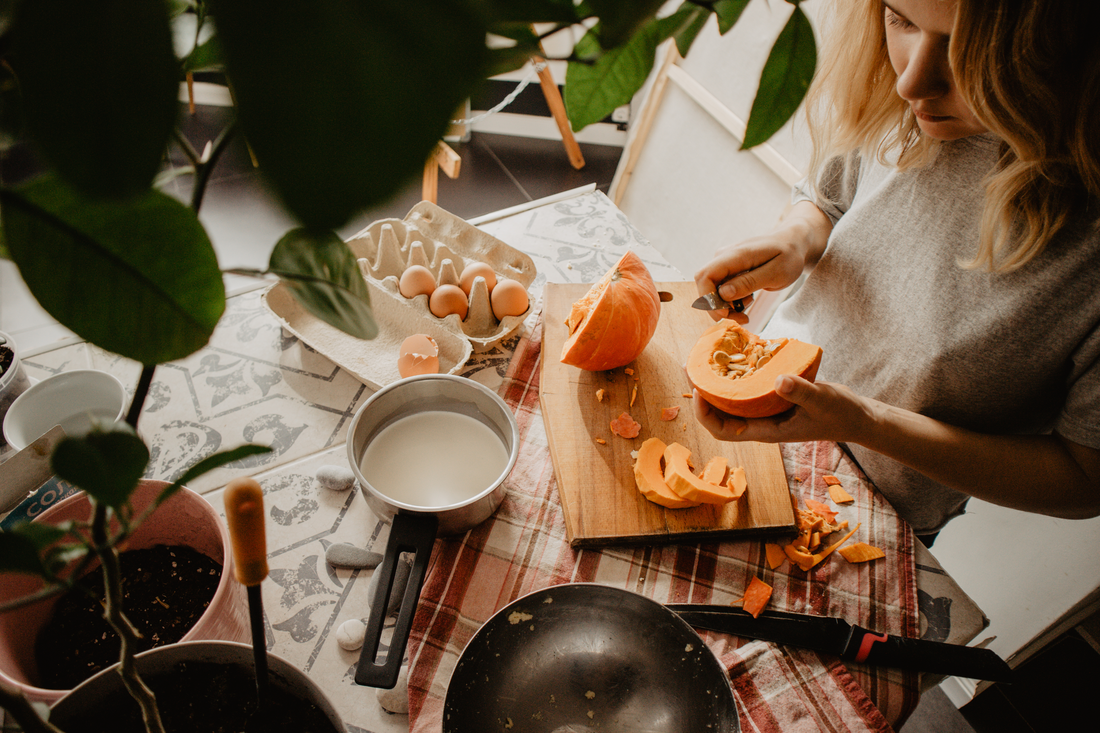|
Our relationship with food can have huge effects on the relationship we have with ourselves, and can reflect onto other aspects of our lives in either positive or negative ways. When people think about relationships, we often automatically think about relationships between humans. However, there are a lot of other important types of relationships within our lives. Our relationship with food is one that is very important, as it can have huge effects on the relationship we have with ourselves and can reflect onto other aspects of our lives in either positive or negative ways. How can a relationship with food be unhealthy? It is common for many people to have an unhealthy relationship with food. This can be based on unrealistic expectations we have for our health or body image that impacts our ability to make informed, meaningful decisions when it comes to eating. Many people restrict their diets, making food choices they don’t necessarily want but feel like they “should” be making, leaving them feeling discontent with their choices or feeling guilty if they don’t follow these unrealistic expectations they have set for themselves. People may have a constant running dialogue in their mind, judging what foods they chose to eat, their portion size and thinking about the consequences of each choice they make throughout the day. This constant negative self-talk can have adverse impacts on one’s stress levels, which can interfere with maintaining a healthy overall well-being. This is only one example of how a relationship with food can be unhealthy, however there are many other forms of dangerous dynamics with food. Tips to Help Build Healthy Food Habits: Try mindful eating.
Being mindful while eating allows you to control your food intake and can assist you in making informed decisions about what you put in your body and how much. Utilize your 5 senses while having each meal, paying attention to how the food looks, the texture, how it tastes and smells, and being aware of the chewing motion allows you to feel more connected to each bite and helps your body monitor hunger and fullness. Rid feelings of guilt. Enjoy the food you are eating. Don’t feed yourself negative thoughts triggering feelings of guilt, shame and regret. This can increase stress levels which can impede digestion and can also have a negative effect on your self-esteem. Accepting your food choices and feeling confident with your decisions, whether it is something healthy or a treat, allows you to feel more in control of your diet and can help you build a healthier relationship with food. Change binging habits. You shouldn’t make yourself feel bad for eating a piece of cake but at the same time, eating one piece of cake shouldn’t justify eating the entire cake in one sitting, “well I already had one piece, may as well go all out”. This all-or-nothing thinking pattern can be just as harmful as those guilty feelings for making food choices that aren’t the healthiest. Eating in moderation is important to maintaining a healthy diet. Show gratitude towards your food. Instead of looking at your food choices through a negative lens, look at it through a lens of gratitude. Showing gratitude can create a connection between you and food, allowing you to make better choices that fit your own personal needs. Don’t use food as a way to cope with emotions. Practicing being more mindful with food hopefully will help you build a better understanding of feeling “full” and “hungry”. If you are using this self-awareness but still find yourself reaching for food even when full maybe this might be a sign that something else is going on. When feeling unprepared to deal with uncomfortable emotions sometimes people can turn to unhealthy coping strategies, and eating is an easy one. Being aware of this emotional eating alone can be helpful, it can allow you to accept this desire to comfort yourself with food but instead make a healthier choice; talk about what’s going on, exercise, journal, create, have a bath, do something relaxing and self-soothing. Stop comparing your eating habits to others. Everyone is unique which means the food we put into our body (types, portion sizes, etc.) is also unique. Comparing yourself to what others are eating is not going to assist you in improving your relationship with food. It is going to trigger those negative thinking patterns, self-doubt and judgement which can all impact your confidence to make your own health-conscious decisions. For those who have to restrict their diets to accommodate to their health, (i.e. lactose intolerant or Celiac) I imagine it can be difficult to not feel some resentment towards those who don’t need to restrict their diet or make accommodations. However, reframing your thinking can help get past some of these difficult thoughts. |
|
OverviewNWO’s source for all things relationships, mental health, wellness, lifestyle, and pandemic support. Kelly Magazine is a mental health outreach initiative created by Kelly Mental Health and supported by Kelly Mental Health Foundation, a non-profit organization dedicated to improving the community in the area of mental health.
|
Magazine |
Follow Us |
In support of @kellymentalhealthfndn |
© COPYRIGHT. ALL RIGHTS RESERVED. WEB DESIGN BY KMH




